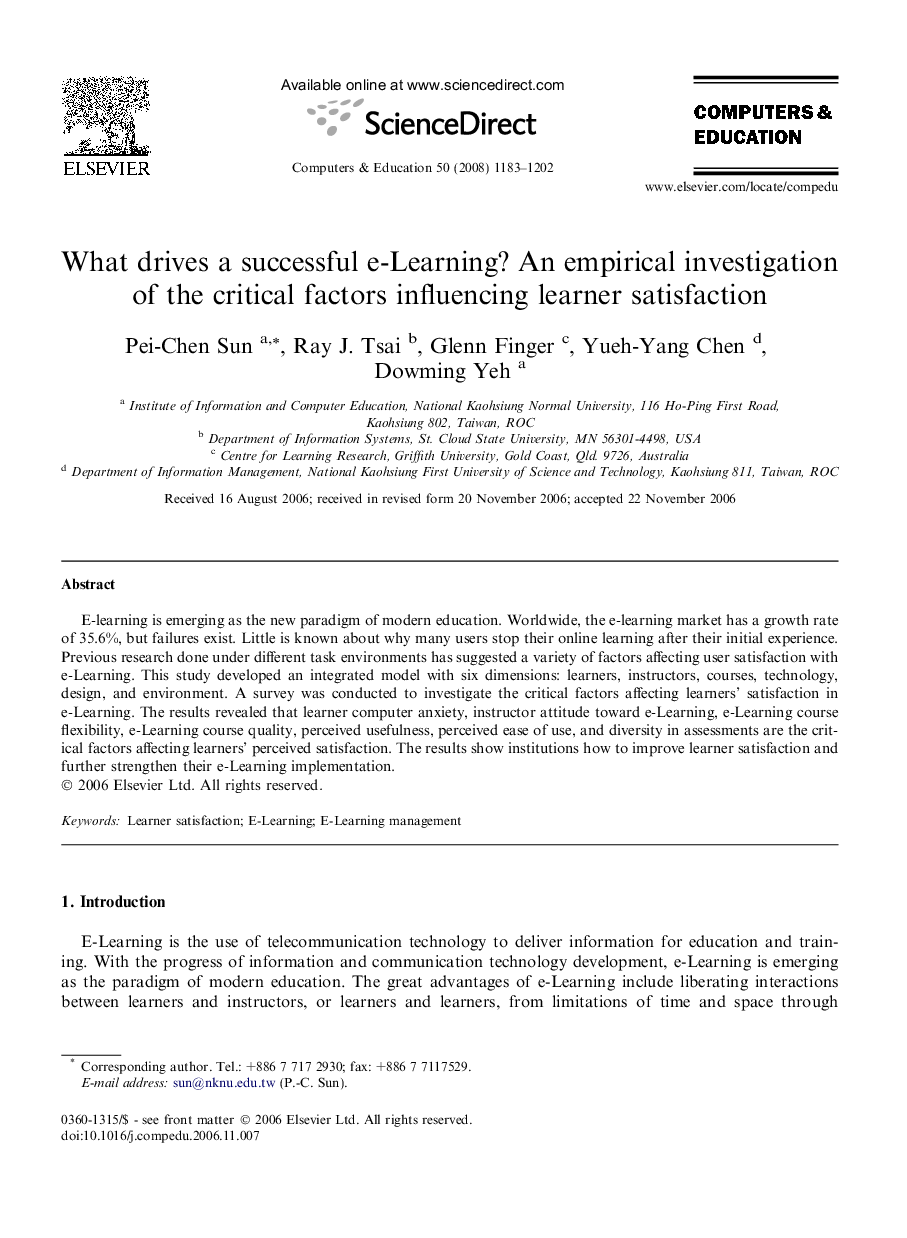| Article ID | Journal | Published Year | Pages | File Type |
|---|---|---|---|---|
| 349546 | Computers & Education | 2008 | 20 Pages |
E-learning is emerging as the new paradigm of modern education. Worldwide, the e-learning market has a growth rate of 35.6%, but failures exist. Little is known about why many users stop their online learning after their initial experience. Previous research done under different task environments has suggested a variety of factors affecting user satisfaction with e-Learning. This study developed an integrated model with six dimensions: learners, instructors, courses, technology, design, and environment. A survey was conducted to investigate the critical factors affecting learners’ satisfaction in e-Learning. The results revealed that learner computer anxiety, instructor attitude toward e-Learning, e-Learning course flexibility, e-Learning course quality, perceived usefulness, perceived ease of use, and diversity in assessments are the critical factors affecting learners’ perceived satisfaction. The results show institutions how to improve learner satisfaction and further strengthen their e-Learning implementation.
